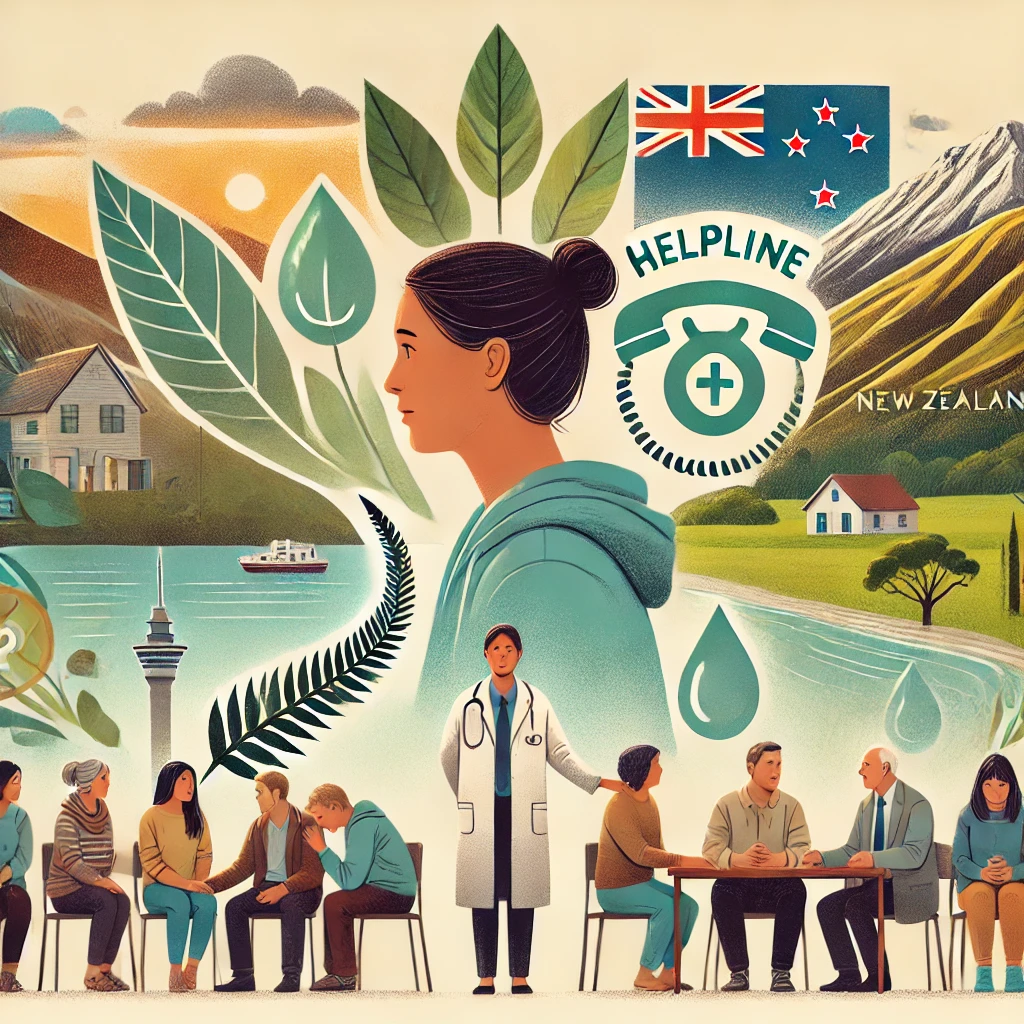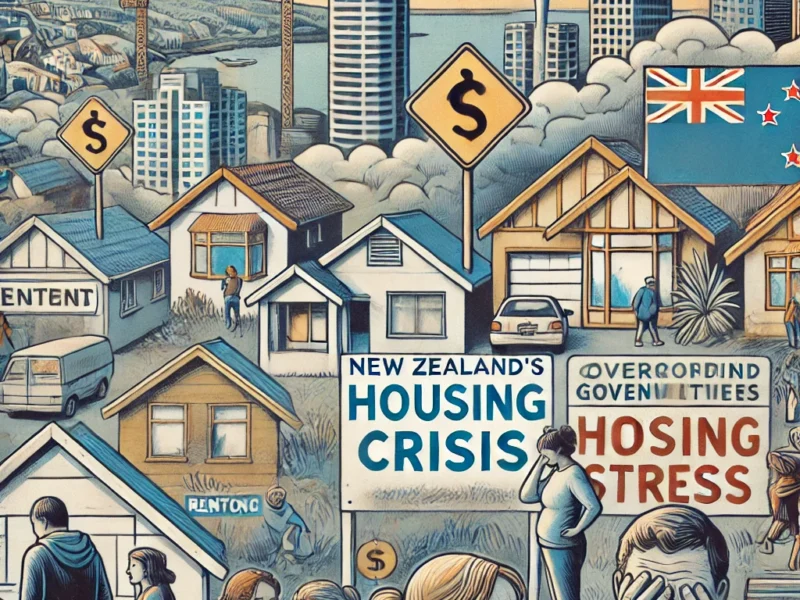Mental health has become one of the most pressing issues in New Zealand, with increasing attention being given to improving access to services, reducing stigma, and providing better support for individuals struggling with mental health challenges. The COVID-19 pandemic has exacerbated mental health concerns worldwide, and New Zealand is no exception. In response, the government, healthcare providers, and community organizations have launched various initiatives aimed at tackling this growing crisis.
This article explores the state of mental health in New Zealand, the factors contributing to the rising demand for mental health services, and the measures being taken to address these challenges.
The State of Mental Health in New Zealand
Mental health has long been a topic of concern in New Zealand, with high rates of anxiety, depression, and suicide affecting communities across the country. According to the New Zealand Mental Health Foundation, one in five New Zealanders experience mental illness each year, and the rates are even higher among certain groups, such as Māori and Pacific Islanders, young people, and those living in rural areas.
The pandemic has intensified these issues, leading to heightened levels of stress, isolation, and uncertainty. With lockdowns, economic hardship, and disruptions to everyday life, many people have experienced a significant toll on their mental well-being. Even as New Zealand has managed the pandemic relatively well compared to other countries, the psychological impact has lingered, pushing mental health into the spotlight as a national priority.
Factors Contributing to the Mental Health Crisis
Several factors have contributed to the mental health challenges faced by New Zealanders, including:
- Stigma Surrounding Mental Health: Despite progress, stigma around mental illness remains a barrier to seeking help. Many individuals hesitate to reach out due to fear of judgment or discrimination, particularly in work environments or within social circles. The cultural pressures to appear strong or resilient can prevent people from discussing their mental health struggles.
- Access to Services: Access to mental health services has been a major issue in New Zealand, particularly in rural and underserved communities. Long waiting times, a shortage of mental health professionals, and limited resources in some areas have left many individuals without the support they need. Even in urban centers, the demand for services often exceeds the capacity of healthcare systems.
- Economic Pressures: The economic uncertainty caused by the pandemic has created additional stress for many individuals and families. Job losses, financial instability, and housing insecurity have contributed to rising levels of anxiety and depression. The economic pressures, combined with social isolation, have worsened mental health outcomes, especially among vulnerable populations.
- Youth Mental Health: New Zealand’s youth are particularly vulnerable to mental health issues, with increasing rates of anxiety, depression, and suicide among young people. The pressures of school, social media, and uncertain futures have created a perfect storm for mental health problems. Many young people feel disconnected, overwhelmed, and unsure of where to turn for help.
- Cultural and Indigenous Considerations: Māori and Pacific Island communities in New Zealand experience disproportionate levels of mental health challenges due to historical and ongoing socio-economic inequalities. Addressing these mental health disparities requires a culturally sensitive approach, recognizing the specific needs of these communities and ensuring they have access to appropriate services and support systems.
Government and Community Response
In response to the growing mental health crisis, the New Zealand government has taken significant steps to improve mental health services and raise awareness. Some of the key initiatives include:
- Increased Funding for Mental Health Services: The New Zealand government has allocated substantial funding to expand mental health services across the country. This includes investments in hiring more mental health professionals, increasing access to therapy and counseling, and expanding digital and telehealth services to reach underserved communities. In 2024, the government announced additional funding to address the backlog of mental health cases that have built up during the pandemic.
- Wellbeing Budget: In 2019, New Zealand introduced its first Wellbeing Budget, which prioritizes mental health alongside other key indicators of social well-being. The budget allocates resources to improving access to mental health services, reducing suicide rates, and supporting community-based mental health initiatives. This approach reflects the government’s commitment to viewing mental health as a core component of national health.
- Suicide Prevention Strategies: New Zealand has one of the highest youth suicide rates in the developed world, and addressing this issue has become a key focus. The government has introduced a suicide prevention strategy aimed at reducing the stigma around mental health, improving support services, and ensuring that those in crisis receive timely help. Efforts have been made to increase funding for crisis intervention services, as well as support for families and communities affected by suicide.
- Telehealth and Digital Mental Health Services: With the rise of digital technology, online mental health platforms and telehealth services have become essential tools for reaching those in need. These platforms provide immediate access to counseling, support groups, and self-help resources, making mental health support more accessible, particularly for individuals in remote or rural areas.
- Community-Based Initiatives: Numerous community organizations have stepped up to provide grassroots mental health support, offering services such as peer counseling, group therapy, and workshops on mental well-being. These initiatives are particularly valuable in smaller communities where formal healthcare services may be limited. The government is working closely with these organizations to ensure they have the resources they need to continue their vital work.
- Workplace Mental Health Programs: Recognizing the impact of mental health on productivity and employee well-being, many businesses in New Zealand are adopting workplace mental health programs. These programs focus on reducing stigma, providing mental health training for managers, and offering support for employees who may be experiencing mental health issues. The government has encouraged this approach by providing resources and guidance for businesses to implement effective mental health policies.
Reducing the Stigma Around Mental Health
One of the most significant barriers to improving mental health outcomes in New Zealand is the stigma surrounding mental illness. To combat this, both the government and non-governmental organizations have launched public awareness campaigns aimed at normalizing conversations about mental health and encouraging individuals to seek help.
Campaigns such as “Like Minds, Like Mine” and “It’s Okay to Not Be Okay” have been instrumental in shifting public perceptions around mental health. These initiatives emphasize that mental illness is not a sign of weakness and that seeking support is a courageous step toward recovery. By promoting open dialogue, these campaigns are helping to break down the barriers that prevent many from accessing the care they need.
Looking Forward: What Needs to Be Done?
While New Zealand has made significant progress in addressing mental health, there is still much work to be done. Expanding access to services, particularly in underserved areas, remains a priority. There is also a need for continued investment in mental health education, both in schools and workplaces, to ensure that individuals have the tools to manage their mental well-being and support others.
Furthermore, addressing the mental health disparities faced by Māori, Pacific Islanders, and other minority groups is essential to creating a more equitable healthcare system. Culturally sensitive approaches, developed in partnership with these communities, will be critical to ensuring that everyone in New Zealand has access to the care they need.
Conclusion
The mental health crisis in New Zealand is a complex issue, but with increased awareness, funding, and support, the country is making strides toward improving mental health outcomes for its citizens. As the government, healthcare providers, and community organizations continue to work together, the goal is to create a society where mental health is prioritized, stigma is reduced, and every individual can access the support they need to live a fulfilling life.
In a time of unprecedented challenges, the efforts to address mental health in New Zealand reflect a broader commitment to the well-being of its people, ensuring that mental health is not just an afterthought, but a core aspect of national health and prosperity.
As New Zealanders continue to unite over their love for sports and major events, it’s important to remember that the mental well-being of athletes and fans alike is a crucial part of the nation’s health. Just as mental health awareness is growing across the country, New Zealand’s passion for sports remains a significant factor in promoting community and well-being. To explore more about the country’s sports culture, read our article on The Passion for Sports and Events in New Zealand: A Nation’s Love for Rugby and Beyond.


